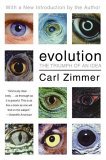
The
California State University, Fresno Consortium for Evolutionary Studies, Tri Beta Biology Honors Club, and the
Department of Biology invite you to a
special public lecture on
March 16, 2010, at 7:30 PM in McLane Hall, room 121 as part of our ongoing
Evolutionary Biology Lecture Series.
Eminent evolutionary ecologist
Prof. Michael Rosenzweig is renowned for his contributions to the theoretical and empirical foundations of evolutionary ecology. He founded and continues to edit the academic journal
Evolutionary Ecology Research. He is the author of a several books including "
Species Diversity in Space and Time", and the popular "
Win-Win Ecology" where he lays out his perspective on conserving biodiversity in places where we humans live and work, not just in remote protected areas. This approach, which he called
Reconciliation Ecology, draws upon principles of evolutionary ecology in an interdisciplinary framework to develop new solutions to reconcile human development with biodiversity conservation on our planet.
Given the recent spate of depressing news about conservation in the US (about which I have recently
complained, nay
ranted) it is my pleasure to invite you to this talk about reconciliation ecology, which is sharply relevant right now. And since this is a public lecture, please feel free to share this announcement, and bring bring your friends and family along too!
Here's the abstract of his talk, and you can download the flyer via the link below:
Life is in peril. A mass extinction threatens to take more than 90% of the world's species. Evolution will not be able to replace these species, neither in kind nor in number. Our religious and ethical responsibilty to protect our world is challenged as never before.
But there is good news: we can prevent this mass extinction with a method called Reconciliation Ecology. Reconciliation Ecology means working out ways for us to have our land and share it too.
Reconciliation Ecology is not a pipe dream. It is widely practiced all over the world. And it is successful. Reconciliation ecology puts nature back into the everyday lives of people, surrounding us with living wonders we usually associate with a vacation in a National Park. It is not expensive and it redesigns our own habitats so that we can keep them, keep living in them, keep using them for our needs, keep earning profits in them... while at the very same time making them havens for wild species of plants and animals.
The new habitats we engineer to satisfy both our desires and the needs of nature will not resemble those of a thousand years ago. This will surely put new evolutionary pressures on the species we harbor. They will change in ways we are only beginning to study. But surely it is better to meet them halfway, better to give them a chance to adapt to us, than to let them vanish utterly and leave our grandchildren with an impoverished world that bears evidence that we did not choose to fulfill our responsibilities.
























